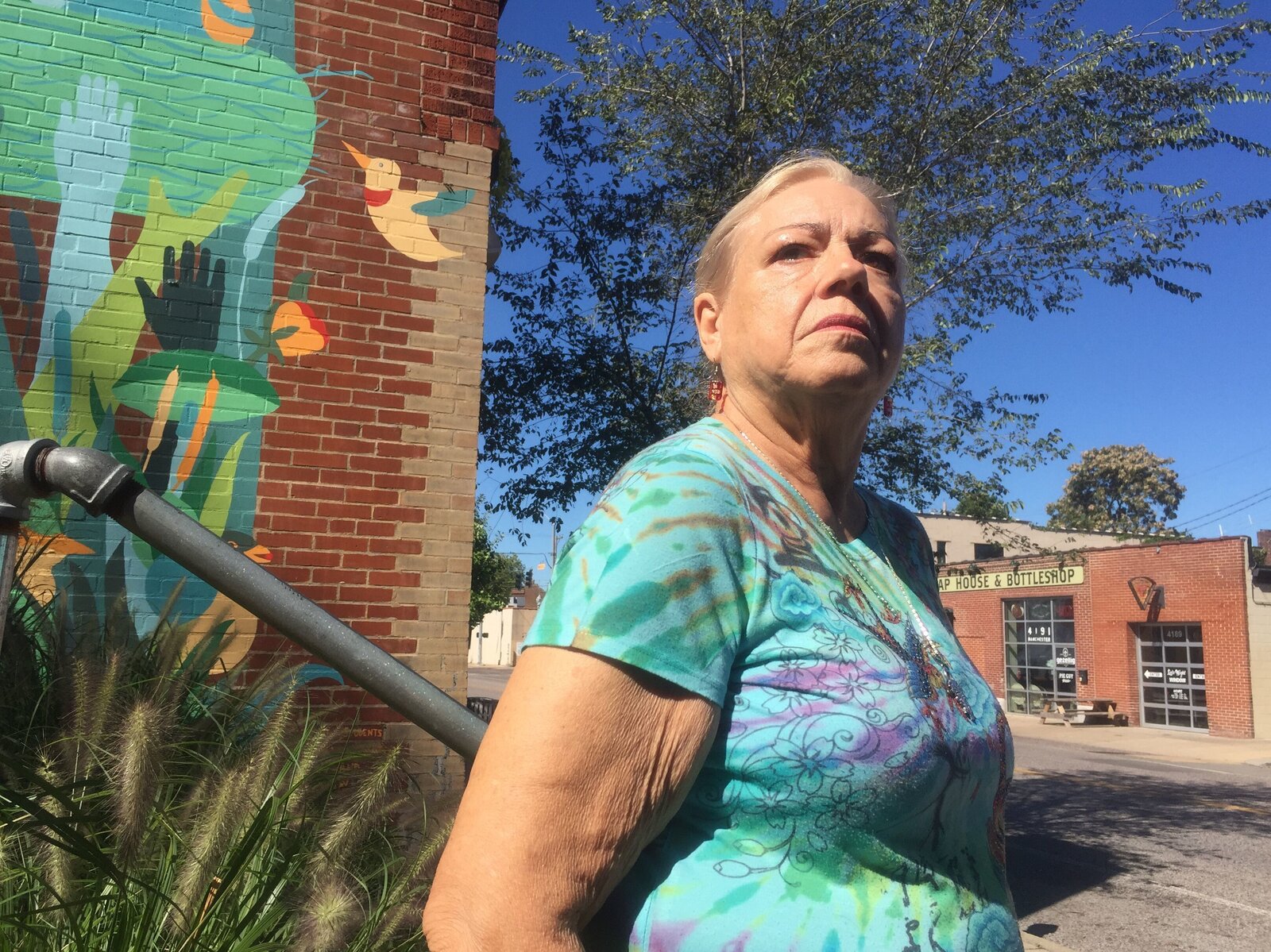
Missouri resident Patricia Powers had no health insurance when she was diagnosed with cancer a few years ago; she and her disabled husband were struggling to get by on, at most, $1,500 a month. If they’d lived across the river in Illinois, she’d have been eligible for Medicaid.Laura Ungar/Kaiser Health News
Patricia Powers went a few years without health insurance and was unable to afford regular doctor visits. So the Missouri resident, who lives near St. Louis, had no idea that cancerous tumors were silently growing in both of her breasts.
If Powers lived just across the Mississippi River in neighboring Illinois, she would have qualified for Medicaid, the federal-state health insurance program for low-income residents that 36 states and the District of Columbia decided to expand under the Affordable Care Act. But Missouri politicians chose not to expand it — a decision some groups are trying to reverse by getting signatures to put the option on the 2020 ballot.
Powers’ predicament reflects an odd twist in the way the health care law has played out: State borders have become arbitrary dividing lines between Medicaid’s haves and have-nots, with Americans in similar financial straits facing vastly different health care fortunes. This affects everything from whether diseases are caught early to whether people can stay well enough to work.
It wasn’t supposed to be this way. The ACA, passed in 2010, called for extending Medicaid to all Americans earning up to 138% of the federal poverty level, about $17,000 annually for…
This article was sourced from NPR.
